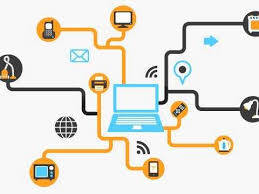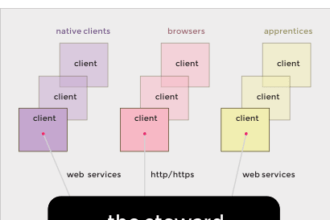 I have written about several aspects of the Internet of Things (IoT) in previous posts on this blog (I have written about several aspects of the Internet of Things (IoT) in previous posts on this blog (The Internet of Humans, The Quality of Things, and Is it finally the Year of IoT?). Two recent articles have examined a few of the things that are interrupting the progress of IoT.
I have written about several aspects of the Internet of Things (IoT) in previous posts on this blog (I have written about several aspects of the Internet of Things (IoT) in previous posts on this blog (The Internet of Humans, The Quality of Things, and Is it finally the Year of IoT?). Two recent articles have examined a few of the things that are interrupting the progress of IoT.
In his InformationWeek article Internet of Things: What’s Holding Us Back, Chris Murphy reported that while “companies in a variety of industries — transportation, energy, heavy equipment, consumer goods, healthcare, hospitality, insurance — are getting measurable results by analyzing data collected from all manner of machines, equipment, devices, appliances, and other networked things” (of which his article notes many examples), there are things slowing the progress of IoT.
One of its myths, Murphy explained, “is that companies have all the data they need, but their real challenge is making sense of it. In reality, the cost of collecting some kinds of data remains too high, the quality of the data isn’t always good enough, and it remains difficult to integrate multiple data sources.”
The fact is a lot of the things we want to connect to IoT weren’t built for Internet connectivity, so it’s not as simple as just sticking a sensor on everything. Poor data quality, especially timeliness, but also completeness and accuracy, is impacting the usefulness of the data transmitted by things currently connected to sensors. Other issues Murphy explores in his article include the lack of wireless network ubiquity, data integration complexities, and securing IoT data centers and devices against Internet threats.
“The clearest IoT successes today,” Murphy concluded, “are from industrial projects that save companies money, rather than from projects that drive new revenue. But even with these industrial projects, companies shouldn’t underestimate the cultural change they need to manage as machines start telling veteran machine operators, train drivers, nurses, and mechanics what’s wrong, and what they should do, in their environment.”
In his Wired article Why Tech’s Best Minds Are Very Worried About the Internet of Things, Klint Finley reported on the findings of a survey about IoT from the Pew Research Center. While potential benefits of IoT were noted, such as medical devices monitoring health and environmental sensors detecting pollution, potential risks were highlighted, security being one of the most immediate concerns. “Beyond security concerns,” Finley explained, “there’s the threat of building a world that may be too complex for our own good. If you think error messages and applications crashes are a problem now, just wait until the web is embedded in everything from your car to your sneakers. Like the VCR that forever blinks 12:00, many of the technologies built into the devices of the future may never be used properly.”
The research also noted concerns about IoT expanding the digital divide, ostracizing those who can not, or choose not to, participate. Data privacy concerns were also raised, including the possibility of dehumanizing the workplace by monitoring employees through wearable devices (e.g., your employee badge being used to track your movements).
Some survey respondents hinted at a division similar to what we hear about the cloud, differentiating a public IoT from a private IoT. In the latter case, instead of sacrificing our privacy for the advantages of connected devices, there’s no reason our devices can’t connect to a private network instead of the public internet. Other survey respondents believe that IoT has been overhyped as the next big thing and while it will be useful in some areas (e.g., the military, hospitals, and prisons) it will not pervade mainstream culture and therefore will not invade our privacy as many fear.








